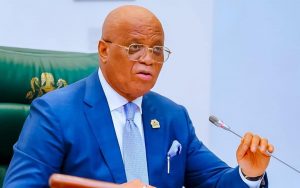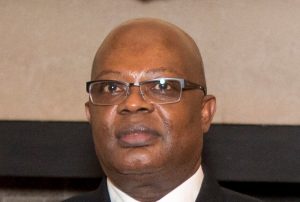Azerbaijan claims capture of key city in Nagorno-Karabakh

In the most significant moment of the conflict that erupted in September over the mountainous and heavily militarized area, Azerbaijani President Ilham Aliyev declared Sunday that his forces had taken Shusha, a city sometimes described as “the Jerusalem of Nagorno-Karabakh” for its religious significance. Azerbaijan’s defense ministry released a video Monday showing the country’s flag flying on public buildings in the city, putting Azerbaijani forces mere miles from the regional capital Stepanakert. The video shows deserted streets and damaged buildings.Shusha — or Shushi as it’s known to Armenians — lies some 10 kilometers south of Stepanakert and is on higher ground, making the capital more vulnerable. It has already suffered regular rocket and missile attacks and many civilians fled over the weekend towards Armenia.The first Armenian acknowledgement that Shusha had fallen came Monday from the spokesman for Nagorno-Karabakh’s presidency, Vahram Poghosyan. He posted on Facebook that the “city is completely out of our control and all kinds of encouraging or inspiring propaganda do[es] not give us anything besides losing the sense of reality.” Poghosyan added that “the enemy is in the vicinity of Stepanakert and now the existence of the capital city is threatened.”However, a short time later, Armenian Prime Minister Nikol Pashinyan wrote a one-line post on Facebook saying: “The battles for Shushi continue.” Arayik Harutyunyan, the president of Nagorno-Karabakh, said on Facebook that “we will fight against the enemy until the end,” without specifically mentioning Shusha. ]]]]>]]> The Armenian authorities have not officially confirmed that Shusha has fallen. As of late Sunday, officials at the ministry of defense maintained that fighting was continuing. Pogohosyan made an appeal to Armenia in his Facebook post, saying: “If you want Shushi to be ours again, and Artsakh [the Armenian name of Nagorno-Karabakh] to be saved, today we have to exert all capabilities to organize the defense of Stepanakert and all directions of the frontline.”Videos posted on social media Sunday showed convoys of cars heading away from Stepanakert, but reports from the city say many civilians remain there. Hours after Azerbaijan’s defense ministry posted the Shusha video online, the Russian defense ministry said a Russian military helicopter was shot down over Armenia near the border with Azerbaijan.The helicopter was downed using a portable surface-to-air missile, the ministry said, adding that two crew members were killed when the Mi-24 crashed in a mountainous area in Armenia and a third was taken to an airfield with injuries.Russia neighbors Azerbaijan, but has a security alliance with Armenia. Moscow has tried to broker a ceasefire several times in the past few weeks, but each agreement fell apart within a short time. Turkish President Recep Tayyip Erdogan — a vocal supporter of Azerbaijan — told a rally in the Turkish city of Kocaeli on Sunday that “the liberation of Shusha also signals that liberation of remaining occupied territories is near.” In a call with Russian President Vladimir Putin on Saturday, Erdogan said Armenia must withdraw from the Azerbaijani lands under its occupation, according to a read-out of the call from the Turkish presidency. The unrest in Nagorno-Karabakh dates back to the collapse of the Soviet Union, when the region, backed by Armenia, declared independence from Azerbaijan. Shusha was captured by Armenian forces in 1992 and Nagorno-Karabakh established a de-facto independence that is not recognized by most of the world. A 1994 ceasefire brought the violent conflict over the enclave to an end, but tensions continued to simmer. Azerbaijan has long claimed it would retake the territory, which is internationally recognized as Azerbaijani. Tensions flared up again over the summer and escalated in September.Both sides have reported dozens of civilian casualties since the conflict began in September. Aren Melikyan reported from Yerevan, Arzu Geybulla and Gul Tuysuz reported from Istanbul, Mary Ilyushina reported from Moscow, Tim Lister reported from Spain and Ivana Kottasová wrote in London.







